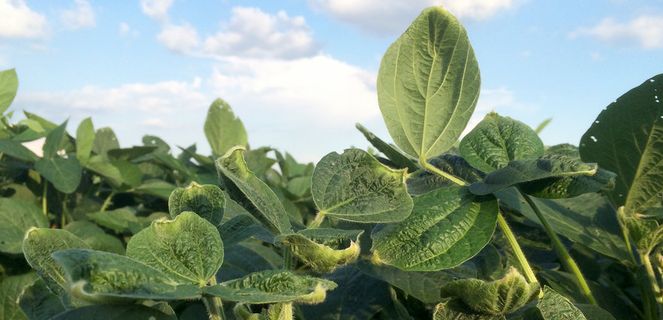Dicamba debate could impact crop planning for 2021
by December 1, 2020 4:49 pm 824 views

The debate over the use of dicamba use continues to rage throughout the country and in the courtroom and it will soon affect crop planning for 2021.
The broad-spectrum herbicide, which was first developed and registered in the late 1960s, has been the foundation of several marketed weed control measures and, more recently, genetically modified seed technologies.
Over the last five years, however, its use has become increasingly controversial in Arkansas and elsewhere. Originally, the U.S. Environmental Protection Agency approved dicamba only for pre-emergent use. In 2016, however, the agency approved use of newer, ostensibly less volatile formulations of dicamba for over-the-top crop spraying in soybeans, cotton and other crops.
A series of federal court rulings and reversals — including an order from the U.S. Ninth Circuit Court of Appeals in June that the U.S. Environmental Protection Agency vacate registrations for three formulations of dicamba, followed by the EPA’s late-October decision to grant dicamba a five-year registration — have made the act of planning crop budgets increasingly uncertain for growers. Various restrictions by state plant boards in Arkansas and elsewhere have also complicated the situation.
Brigit Rollins, staff attorney with the National Agricultural Law Center, part of the University of Arkansas System Division of Agriculture, said the pesticide’s prominent role in modern agriculture has made it an important one to decipher and explain — not only from an environmental standpoint, but from a legal standpoint as well.
“From a legal perspective, it is an issue with a lot of parts,” Rollins said. “There have been numerous lawsuits filed both by farmers seeking compensation for crop damage they’ve experienced, and by environmental organizations looking to vacate federal registration for dicamba products.
“The claims being brought in these cases range from state law tort claims like negligence to claims that the EPA violated federal statutes,” she said. “There are a lot of moving pieces to this issue, which can make it a tough one to untangle.”
In recent months, Rollins has worked to keep farmers, consultants and other members of the agricultural community up-to-date with ongoing changes through a series of blog posts under the title, “The Deal With Dicamba.”
“It is very likely that the new dicamba registration will be challenged in court,” Rollins wrote of the EPA’s Oct. 27 decision. “The Center for Food Safety, which has filed lawsuits against previous dicamba registrations, has stated that it expects to challenge the most recent registration. It is uncertain how such a lawsuit will play out, but farmers, agricultural retailers, and other stakeholders who use or sell dicamba should be aware that such a challenge is likely to occur.”
Rollins said that the issue of dicamba is likely far from decided.
“The Center for Food Safety has indicated that it intends to challenge EPA’s recent registration decision, so it seems likely that lawsuit is on the way, and it’s impossible to predict what the outcome of such a lawsuit would be,” she said. “The dicamba issue is on-going, and it may be a while before anything is settled.”
Dicamba has been highly controversial in its application since the Arkansas Plant Board received about 1,000 damage complaints in May 2017, primarily in Northeast Arkansas. Drift from the application of dicamba was suspected to be damaging other crops.
The board, which investigates and reviews complaints, previously enacted higher fines on improper dicamba applications meant to serve as a significant deterrent to potential violators.
The Arkansas Plant Board will likely release its dicamba regulations prior to the 2021 planting season.
